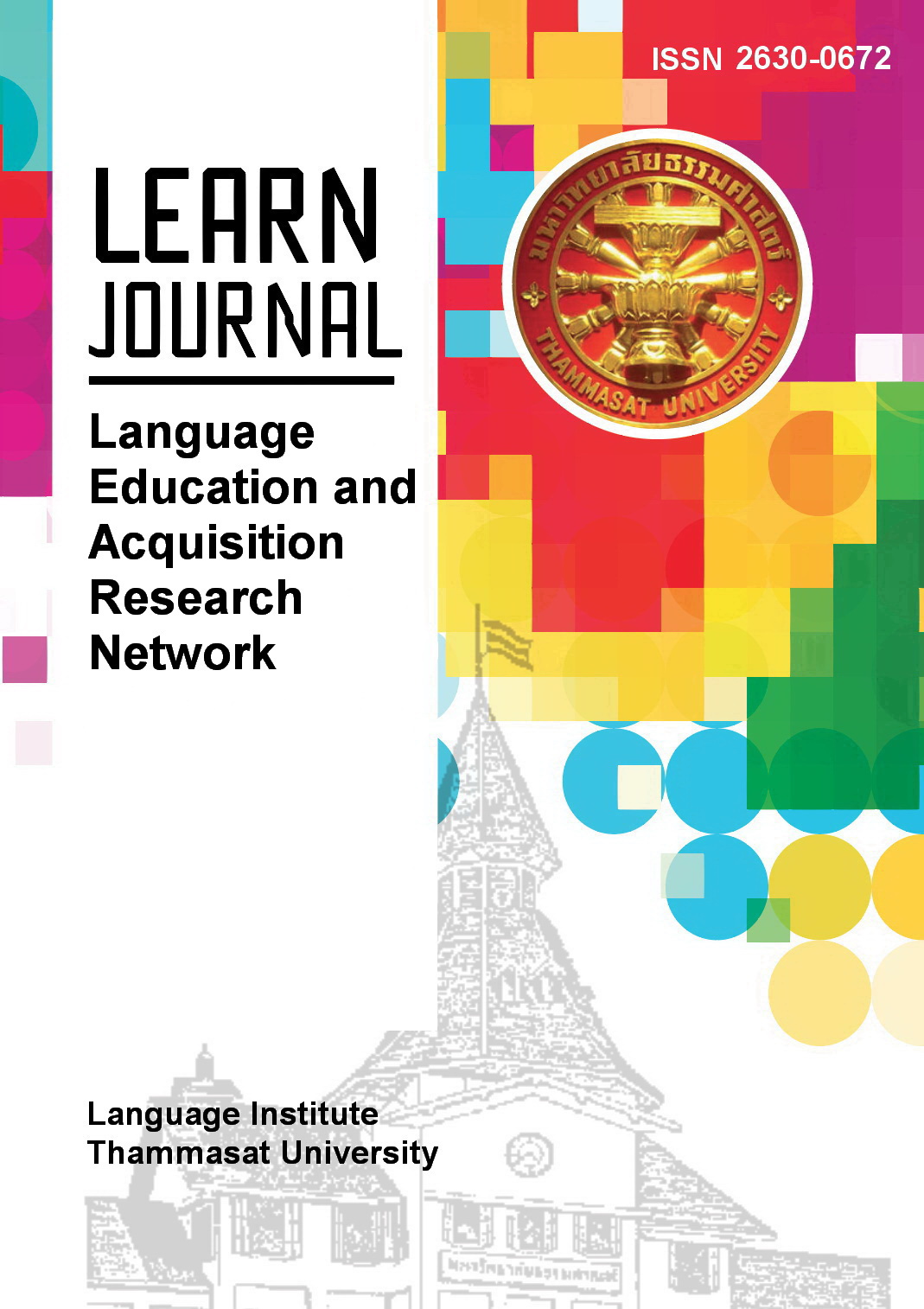Qualitative and Quantitative are Data Types not Paradigms: An MMA Framework for Mixed Research in Applied Linguistics
Main Article Content
Abstract
Mixed methods research, or mixed research, is an area with a great deal of promise for applied linguistics, especially given the field’s diverse range of topics and methods. However, when mixed research mixes qualitative and qualitative methods, this can be problematic as researchers suppose this implies mixing mutually exclusive ‘quantitative’ and ‘qualitative’ paradigms. This paper argues that these problems arise from the identification of paradigms as qualitative or qualitative. It explores how mixed research might be conducted from a single paradigm. Finally, it offers a novel framework for mixed research which allows for a finer grained and less problematic description of mixed research.
Article Details
References
Cook, G. (2015). ‘Birds out of dinosaurs: The death and life of applied linguistics’, Applied Linguistics, 36/4: 425–33. DOI: 10.1093/applin/amv038
Greene, J. C. (2015). ‘Preserving distinctions within the multimethod and mixed methods research merger’. Hesse-Biber S. N. & Johnson R. B. (eds) The Oxford Handbook of Multimethod and Mixed Methods Research Inquiry. Oxford University Press: Oxford.
Greene, J. C., & Hall, J. N. (2010). ‘Dialectics and pragmatism: Being of consequence’. SAGE Handbook of Mixed Methods in Social & Behavioral Research, pp. 119–44. SAGE Publications, Inc.: Thousand Oaks California.
Guba, E. G., & Lincoln, Y. S. (1994). ‘Competing paradigms in qualitative research’. Handbook of Quantitative Research, pp. 191–215. Sage.
Hampson, T., & McKinley, J. (2023). ‘Problems posing as solutions: Criticising pragmatism as a paradigm for mixed research’, Research in Education, 003452372311600. DOI: 10.1177/00345237231160085
Hesse-Biber, S. (2015). ‘Mixed methods research: The “thing-ness” problem’, Qualitative Health Research, 25/6: 775–88.
Johnson, R. B., & Onwuegbuzie, A. J. (2004). ‘Mixed methods research: A research paradigm whose time has come’, Educational Researcher, 33/7: 14–26.
Lincoln, Y. S., & Guba, E. G. (1985). Naturalistic Inquiry. Beverly Hills, California: SAGE Publications.
McKinley, J. (2020). Theorizing research methods in the ‘golden age’ of applied linguistics research. In McKinley, J. & Rose, H. (Eds.). The Routledge handbook of research methods in applied linguistics (pp. 1-12). Routledge.
Riazi, A. M. (2016). The Routledge Encyclopedia of Research Methods in Applied Linguistics. Routledge. DOI: 10.4324/9781315656762
Riazi, A. M., & Candlin, C. N. (2014). ‘Mixed-methods research in language teaching and learning: Opportunities, issues and challenges’, Language Teaching, 47/2: 135–73.


